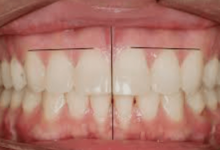The Mystery of Wisdom Teeth You’ve Been Wondering About

Wisdom teeth, or third molars, emerged in late adolescence and were important for our ancestors’ diets. Nowadays, due to softer diets and smaller jaws, they are often vestigial and can cause complications. While some people retain their wisdom teeth without problems, discomfort is common, leading to modern dental management. Recognizing their original purpose sheds light on their relevance today.
The Process of Wisdom Teeth Development
Wisdom teeth development is a natural part of human growth, typically occurring between the ages of 17 and 25. This timeline varies widely among individuals, with some experiencing earlier or later development. During this period, the wisdom teeth push through the gum line, attempting to take their place at the back of the mouth.
However, as wisdom teeth emerge, they can impact oral health in several ways. The lack of space in the jaw often leads to these teeth becoming impacted, meaning they are unable to break through the gum line completely. This impaction can result in discomfort, pain, or even infection. Furthermore, impacted wisdom teeth can exert pressure on adjacent teeth, leading to alignment issues that may require orthodontic intervention.
Emerging wisdom teeth can also pose hygiene challenges. Their location makes cleaning difficult, increasing the risk of cavities and gum disease. For dental patients, understanding these potential complications is crucial for maintaining oral health during the late teen years and early adulthood.
Signs and Symptoms of Problematic Wisdom Teeth
Recognizing the signs and symptoms of problematic wisdom teeth is essential for timely intervention and treatment. One common sign is persistent pain at the back of the mouth, which may radiate to the jaw, ear, or head. This discomfort can indicate that a wisdom tooth is impacted or growing at an awkward angle.
Another symptom to watch for is swelling or redness in the gums around the emerging wisdom teeth. This inflammation is often accompanied by tenderness and difficulty opening the mouth fully. In some cases, pus or a bad taste may occur, signaling an infection that requires immediate attention from a dental professional.
Sensitivity to hot or cold foods, as well as difficulty chewing, can also be indicators of wisdom teeth issues. These symptoms often result from the pressure exerted by the growing teeth on neighboring molars. By being aware of these signs, patients can seek early intervention to prevent further complications.
Wisdom Teeth Extraction
When wisdom teeth become problematic, extraction is often the recommended course of action. This procedure involves removing one or more of these molars and is typically performed by a dentist or an oral surgeon, like those available in Salt Lake City. Understanding what to expect during wisdom teeth extraction can alleviate anxiety and help patients prepare for the process.
Before the extraction, a thorough examination, including X-rays, is conducted to assess the position and condition of the wisdom teeth. This evaluation helps determine the complexity of the extraction and whether a simple or surgical approach is needed. Local anesthesia is commonly used to numb the area, ensuring a pain-free experience during the procedure.
Post-extraction, recovery is an important phase. Patients are advised to follow specific care instructions, such as avoiding hard foods, keeping the extraction site clean, and managing pain with prescribed medications. Swelling and discomfort are normal in the initial days, but these symptoms should gradually subside. Following a dentist’s guidance ensures a smooth recovery and minimizes the risk of complications.
Preventive Measures and Oral Care
Taking preventive measures is key to managing wisdom teeth and maintaining optimal oral health. Regular dental check-ups are crucial for monitoring the development of wisdom teeth and identifying potential issues early. By staying proactive, patients can address problems before they escalate.
Good oral hygiene practices also play a significant role in preventing wisdom teeth-related complications. Brushing twice a day, flossing daily, and using an antibacterial mouthwash help keep the mouth clean and minimize the risk of infection. Special attention should be paid to the back of the mouth to ensure thorough cleaning around the wisdom teeth.
For those experiencing discomfort or early signs of wisdom teeth issues, over-the-counter pain relievers and saltwater rinses can provide temporary relief. However, it’s essential to consult a dental professional for a comprehensive evaluation and personalized advice on how to manage and prevent further problems.
Conclusion
Understanding wisdom teeth and their potential impact on oral health is vital for dental patients, teens, and oral health enthusiasts alike. From recognizing signs of trouble to knowing when extraction is necessary, being informed empowers individuals to make proactive decisions about their dental care.






